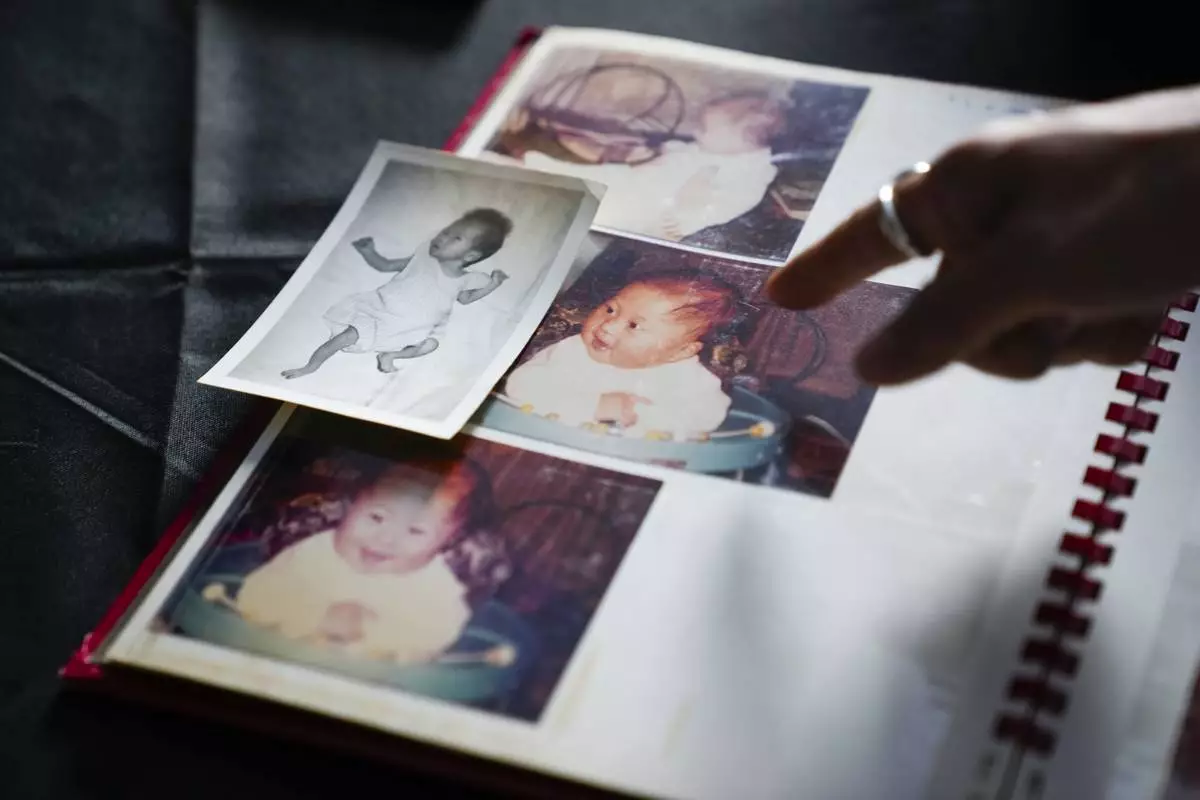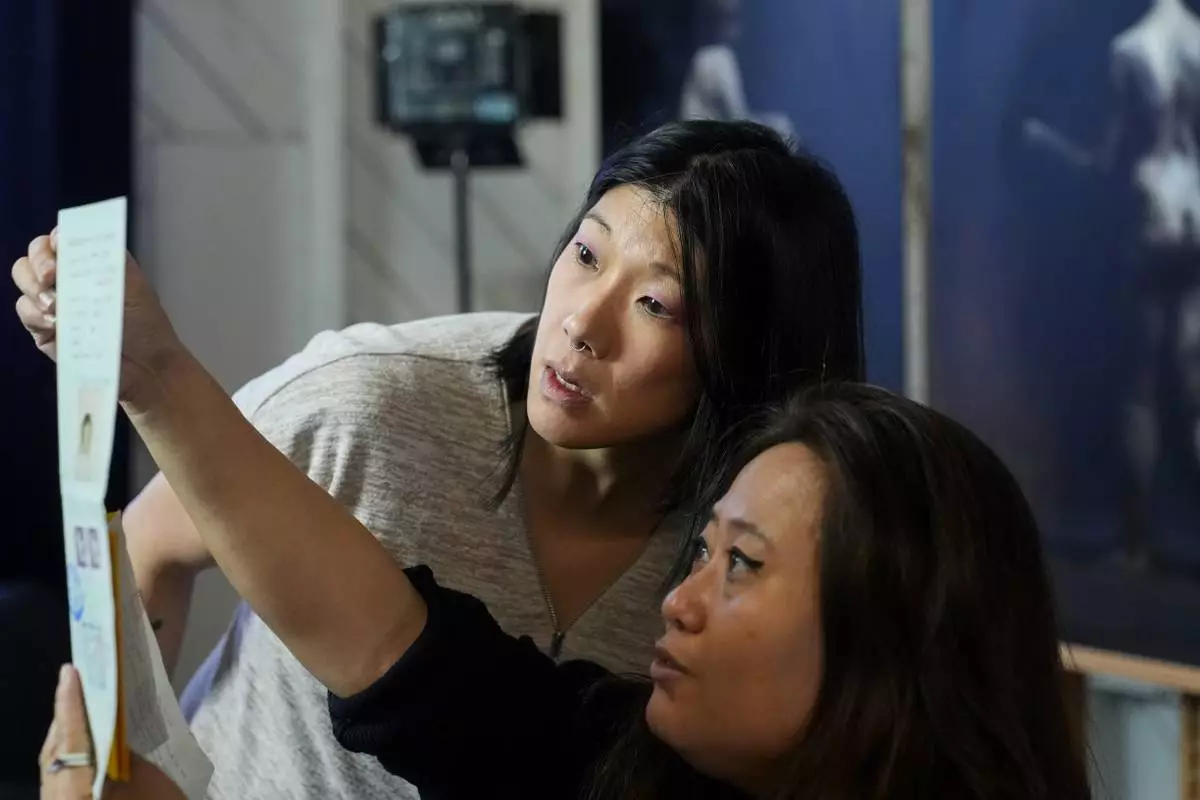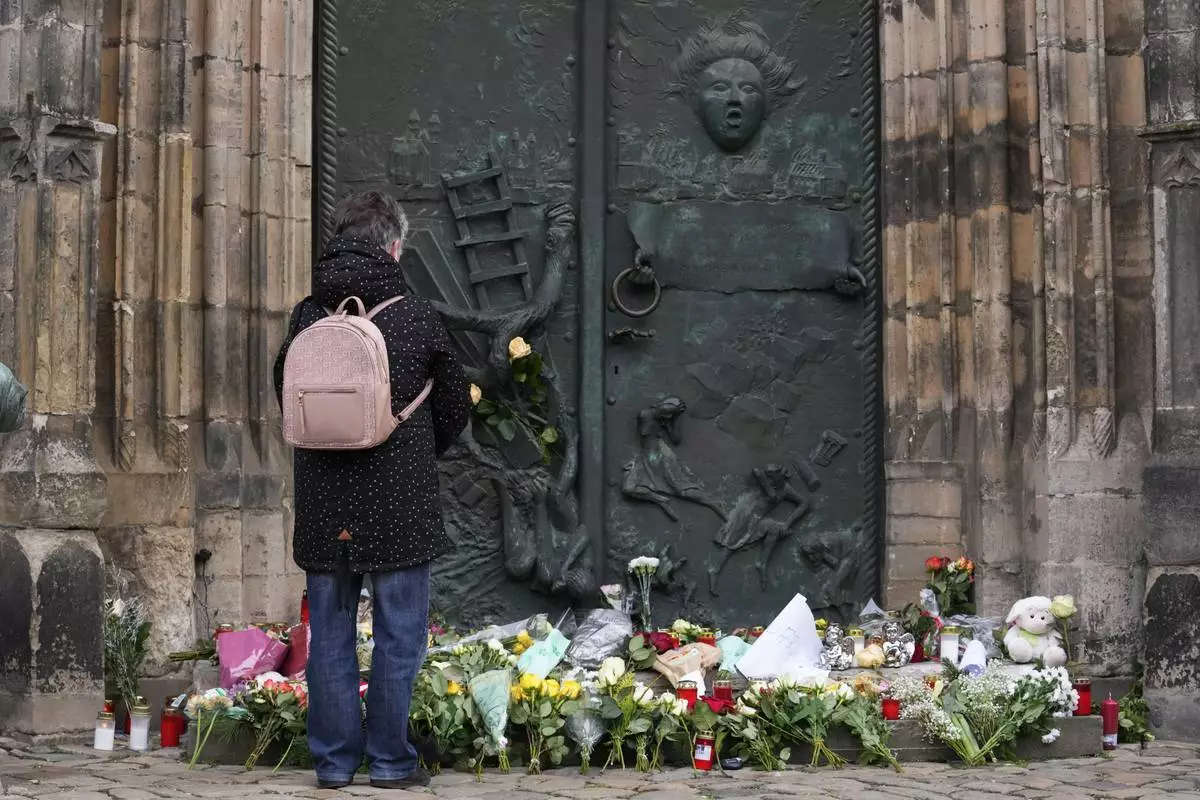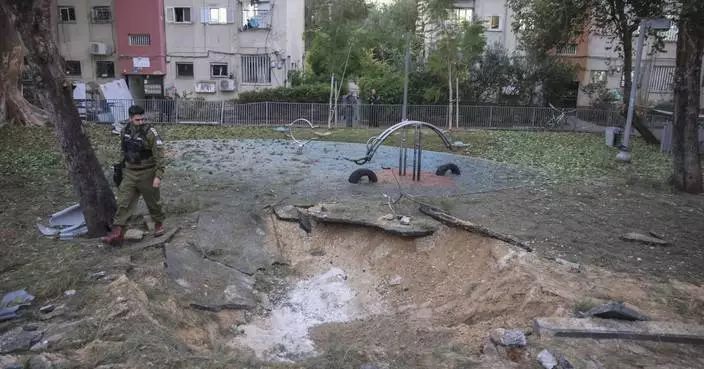SEOUL, South Korea (AP) — Rebecca Kimmel sat in a small room, stunned and speechless, staring at the baby photo she had just unearthed from her adoption file.
Something about the photo — the eyes, the ears, an uneasy feeling deep in her gut — confirmed what the Korean adoptee had long suspected: This baby was not her. And the stories she'd been told about herself were a lie. But then who was she? Who IS she?
Thousands of South Korean adoptees are looking to satisfy a raw, compelling urge that much of the world takes for granted: the search for identity. Like many of them, Kimmel has stumbled into a web of switched photos, made-up stories and false documents, all designed to erase the very identity she desperately wants to find.
These adoptees live with the consequences of a tacit partnership by the South Korean government, Western nations and adoption agencies that has supplied some 200,000 children to parents overseas, despite warnings of widespread fraud.
After a long search with many twists, Kimmel still doesn’t know who she is. But in the process, she arranged a reunion between a birth father and his twin daughters, who had been separated for decades.
Here are some steps Korean adoptees could take to learn more about their past:
Adoptees can first request information from their adoption agencies. If they don’t get results from agencies, they can contact the South Korean government’s National Center for the Rights of the Child as a second step.
Birth searches can take months and aren’t always successful. Less than a fifth of 15,000 adoptees who have asked the government for help with family searches since 2012 have managed to reunite with relatives, according to data obtained by AP. Failures are often caused by inaccurate records or the practice of describing children as abandoned even when they had known parents.
Many adoptees also criticize the consent process for reunions. Adoption agencies and the NCRC can only use traditional mail, and only up to three times per search, to contact birth parents for their consent to provide personal details to adoptees and meet them. Privacy laws prevent agency and NCRC workers from accessing birth parents’ phone numbers. Still, the Korean-language adoption documents kept by South Korean agencies often have more background information than translated files sent to Western adoptive parents. When they don’t get results, adoptees can request another search after a year.
When they fail to locate birth parents, NCRC may recommend that adoptees register their DNA with South Korean police or diplomatic offices, or help them publish their stories in South Korean media.
Frustrated with search failures and unreliable records, many Korean adoptees in recent years have attempted to reconnect with their birth families through DNA. Adoptees can register their DNA with a South Korean embassy or consulate in the country where they live. They can also register their DNA with a local police station if they travel to South Korea.
DNA testing isn’t common in South Korea, and the process usually depends on whether the birth family had also been trying to find the adoptee through DNA. Once collected at diplomatic or police offices, adoptees’ genetic information is cross-checked with South Korea’s national DNA database for missing persons. When there is a match, the adoption agency or NCRC takes steps to arrange a reunion.
Previously, Korean police and diplomatic offices had restricted DNA testing to adoptees they suspected were missing children. This frustrated many adoptees, especially those whose paperwork mentioned any form of parental consent, however vague, as they were denied tests. But the policy has changed, and even adoptees whose documents claim parental consent can undergo DNA testing if officials are unable to locate their birth parents.
Some adoptees have also found birth relatives through commercial DNA tests popular in the West. The nonprofit group 325 Kamra helps South Korean adoptees and birth families reunite through DNA, by allowing adoptees to upload their commercial test results to a database or providing test kits.
There are various Facebook groups — some open, others closed for adoptees only — where adoptees talk about their lives and interactions with adoption agencies.
One of the most active pages is run by Banet, a volunteer group named after the Korean word for newborn baby clothing. The group helps adoptees search for birth families, connects them with government and police, and provides translation during meetings with Korean relatives.
Some websites are tailored to adoptees sharing the same agency, such as Paperslip, where Kimmel is a key contributor. The website helps adoptees placed through Korea Social Service with birth family searches and adoption document requests.
The Seoul-based nonprofit Global Overseas Adoptees’ Link assists adoptees with birth family searches as well as language education, social events and obtaining visas for employment in South Korea. KoRoot, another Seoul-based civic group, also helps adoptees searching for their families and backgrounds and runs advocacy programs.
This story is part of an ongoing investigation led by The Associated Press in collaboration with FRONTLINE (PBS). The investigation includes an interactive and documentary, South Korea’s Adoption Reckoning.
Contact AP’s global investigative team at Investigative@ap.org.

Rebecca Kimmel points to color photos of herself after being adopted, next to a photo of a girl used in her adoption file that she believes is a different baby, Saturday, July 1, 2023, at her art studio in Seattle. AP Photo/Lindsey Wasson)

Rebecca Kimmel, front right, invited fellow adoptee Sarah Butcher to her art studio space to examine Butcher's adoption documents Sunday, Jan. 28, 2024, in Seattle. Kimmel now helps other adoptees spending hours advising them on how to get documents and information, and sharing news on adoption policies and birth search requests. (AP Photo/Lindsey Wasson)










